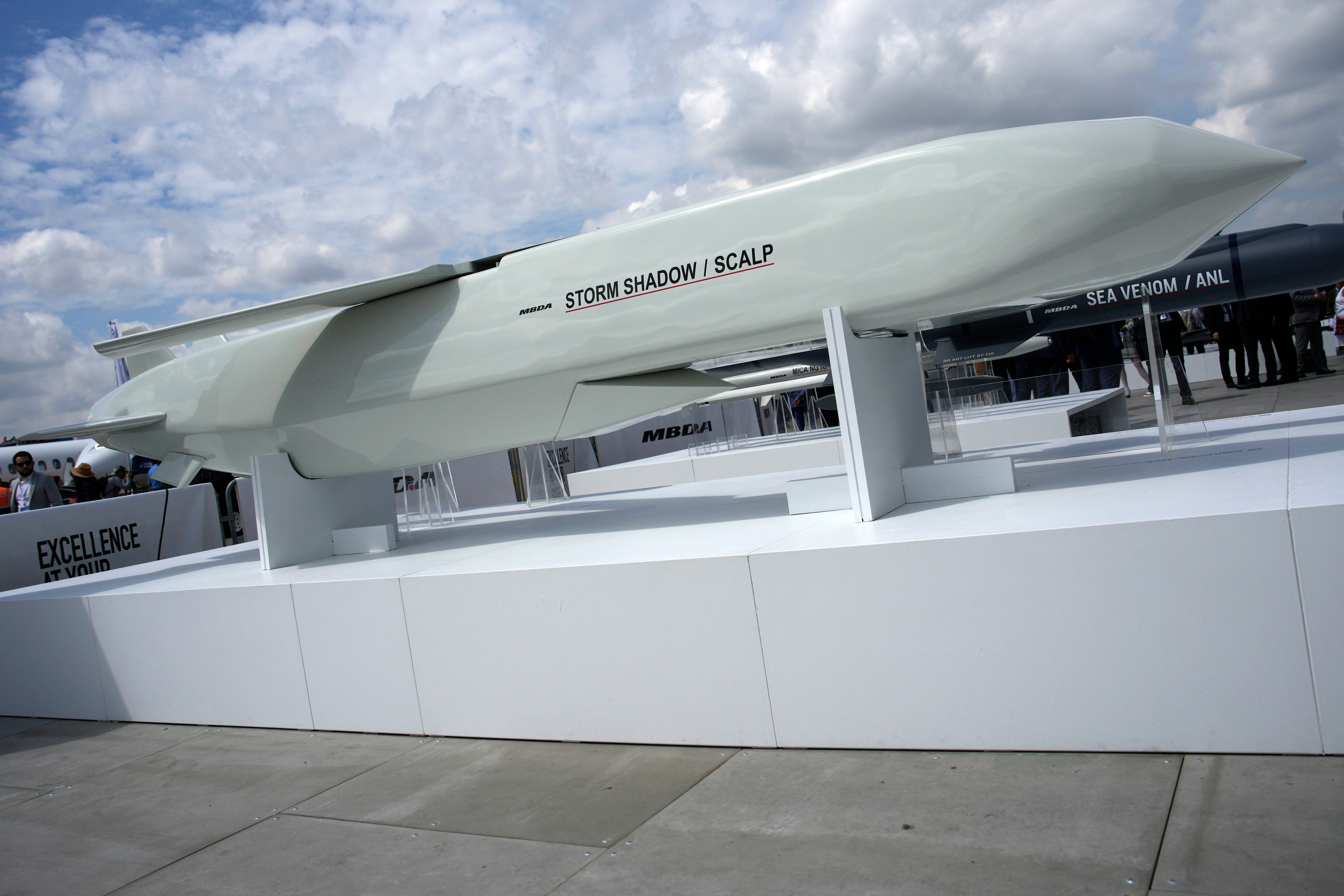France's Macron urges a green light for Ukraine to strike targets inside Russia with Western weapons
French President Emmanuel Macron says Western countries should let Ukraine strike military bases inside Russia with the sophisticated long-range weapons they are providing to Kyiv

Your support helps us to tell the story
From reproductive rights to climate change to Big Tech, The Independent is on the ground when the story is developing. Whether it's investigating the financials of Elon Musk's pro-Trump PAC or producing our latest documentary, 'The A Word', which shines a light on the American women fighting for reproductive rights, we know how important it is to parse out the facts from the messaging.
At such a critical moment in US history, we need reporters on the ground. Your donation allows us to keep sending journalists to speak to both sides of the story.
The Independent is trusted by Americans across the entire political spectrum. And unlike many other quality news outlets, we choose not to lock Americans out of our reporting and analysis with paywalls. We believe quality journalism should be available to everyone, paid for by those who can afford it.
Your support makes all the difference.Western countries should let Ukraine strike military bases inside Russia with the sophisticated long-range weapons they are providing to Kyiv, French President Emmanuel Macron said, pressuring his allies in the most recent sign of a potentially significant policy shift that could help change the complexion of the war.
The question of whether to allow Ukraine to hit targets on Russian soil with Western-supplied weaponry has been a delicate issue since the Kremlin’s full-scale invasion of its neighbor in February 2022.
Western leaders have mostly shrunk from taking the step because it runs the risk of provoking Russian President Vladimir Putin, who has repeatedly warned that the West's direct involvement could put the world on a path to nuclear conflict.
But the war has been going Russia’s way recently as the Kremlin’s forces have exploited Ukrainian shortages in troops and ammunition after a lengthy delay in U.S. military aid and Western Europe’s inadequate military production slowed crucial deliveries to the battlefield.
Russian missiles and bombs have smashed into Ukrainian military positions and civilian areas, including the power grid. Kyiv is facing its hardest test of the war, and untying its hands on long-range weapons could spur a fightback and upset the Kremlin.
Macron said France's position is that “we think we must allow (Ukraine) to neutralize the (Russian) military sites from which the missiles are fired."
“If we tell (the Ukrainians) you do not have the right to reach the point from which the missiles are fired, we are in fact telling them that we are delivering weapons to you but you cannot defend yourself,” Macron said late Tuesday on an official visit to Germany.
His remarks came a day after NATO Secretary-General Jens Stoltenberg urged the alliance’s members to lift some of the restrictions on Ukraine’s use of Western weapons.
“The right to self-defense includes hitting legitimate targets outside Ukraine,” Stoltenberg said at a NATO meeting in Sofia, Bulgaria on Monday.
Already, at the start of May, Moscow interpreted as a threat U.K. Foreign Secretary David Cameron’s comment that Ukraine could use British long-range weapons, such as the Storm Shadow cruise missile, to hit back at Russia.
That, and Macron’s comments that he doesn’t exclude sending troops to Ukraine, prompted Russia to announce it would hold drills involving tactical nuclear weapons. Russia also warned London that its decision could bring retaliatory strikes on British military facilities and equipment on Ukrainian soil or elsewhere.
The leaders are choosing their words carefully. Macron underlined that only Russian bases used to launch missiles against Ukraine should be regarded as legitimate targets — not other Russian bases or civilian infrastructure.
German Chancellor Olaf Scholz, speaking alongside Macron, was as usual more guarded and noncommittal, noting that under international law Ukraine “is allowed to defend itself.”
Scholz has insisted on avoiding steps that could end up drawing NATO into a battlefield confrontation with Russia. Other Western leaders have expressed similar fears of a creeping, high-stakes escalation.
His concerns are shared in Washington. The U.S. has over the past two years gradually ceded to Ukrainian requests for support, sending tanks and long-range missile systems that it initially hesitated to provide, but with a caveat on aiming at Russian soil.
“There’s no change to our policy at this point,” U.S. National Security Council spokesman John Kirby said Tuesday. “We don’t encourage or enable the use of U.S.-supplied weapons to strike inside Russia.”
Western leaders are keen to put pressure on Putin, whose forces have recently been pushing hard against Ukrainian defenses in eastern and northeastern Ukraine.
This week has brought a cascade of new European aid, with Belgium and Spain each pledging around 1 billion euros ($1.1 billion) in new military support to Ukraine. Sweden announced Wednesday it will donate a aid worth 13 billion kronor ($1.23 billion) — the largest package Sweden has so far donated. It will include air defense systems, artillery ammunition and armored vehicles.
___
Follow AP’s coverage of the war in Ukraine at https://apnews.com/hub/russia-ukraine